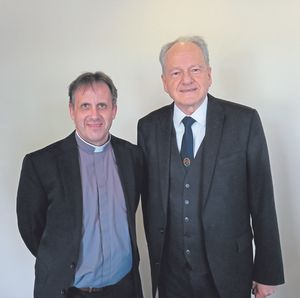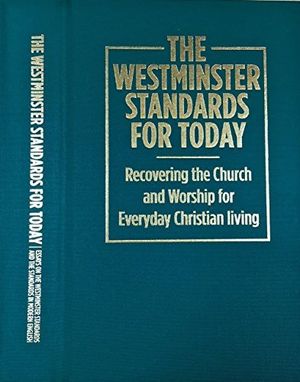
Extent and efficacy
Some will contend that you should be able to say to the sinner: ‘See what love God has for you. He sent his Son to die for you on the cross’. The problem here, however, is that it creates a tension between the extent of the atonement and the efficacy of the atonement. You cannot have it both ways.
If the atonement is not ‘limited’ in extent, yet all are not saved, then it must be limited in effect. If, on the other hand, you maintain that the atonement is utterly effective, that is to say, that all for whom Jesus died will be saved, then the atonement must clearly be limited in extent. But can we show that Scripture really teaches such a limited or, perhaps better, definite or particular atonement?
The basis of salvation
If we ask, ‘What is the basis of the salvation of sinners?’ we might answer, ‘Eternal election’. But in asking that question the concern is really, ‘How is God satisfied to receive sinners?’ They are ‘totally depraved’. They have no righteousness of their own, and there must therefore be a different basis on which God will accept the sinner. Sin must be punished. If this punishment is not to fall on the sinner, then on whom?
Of course, the answer is that man’s sin is punished in Christ, specifically through his death as a substitute for sinners. But, for whom does he stand substitute? All men? If so, surely they would all be saved, reconciled and pardoned. The Arminian evangelical will say he died for ‘everyone’, so that you can tell the sinner, ‘Christ died for you, therefore you should believe on him’.
The sins of the whole world
They may point to texts which, on the face of it, seem to support this view. For example, 1 John 2:2; 2 Corinthians 5:14; John 4:42 are all texts in which Christ is said to have died for ‘all’ or for ‘the world’. In such verses, however, it can be demonstrated that the references, which seem universal, are not universal in an absolute sense, but only in a ‘distributive’ sense. Let me explain.

For example, in 1 John 2 the apostle speaks of Christ as being ‘the propitiation for our sins’, and then adds, ‘and not for ours only but also for the whole world’. But this latter phrase need not be taken, and should not be taken, as referring to everyone, everywhere in the world, in every age. Rather, it should be understood in this way: ‘Christ has died for our sins, namely, the sins of you believers to whom I am writing and mine, but not only ours, but also the sins of all those throughout the whole world who likewise trust in the Lord as Saviour and have experienced his grace in salvation’. In other words, such verses are not to be understood in an inclusive sense (that is, absolutely all), but in an exclusive sense (i.e. all peoples, types and kinds).
Comparing Scripture with Scripture
In any case, all such ‘universal’ texts must necessarily be qualified by those passages that clearly teach the limited extent of the application of redemption. Ultimately, it will be recognised that no one can be lost for whom Christ died. Blatant universalism, which teaches that all human beings will eventually be saved is, of course, against the whole tenor of Scripture. But those who reject universalism, but nevertheless maintain that Christ died for all, must see that if Christ died for any who are not ultimately saved, he will have died in vain. Or, at the very least, his atonement lacks effectiveness to accomplish salvation for sinners.
Whose doctrine of atonement, then, is really the limited one? The Bible is clear that not all are saved. One does not need to look further than the Book of Revelation, and the distinctions made there between the saved and the unsaved, to recognise this. It is, therefore, perilous to say that Christ died for all without exception. Calvinism, in line with Scripture, teaches that Christ died for a particular people – the elect, those who, in time, become true believers in the Lord Jesus Christ.

Limited atonement
Consider the following Bible evidence.
1. God the Father clearly intended the atonement to pay for the sins of those whom he gives to the Son, the Lord Jesus Christ. This may be thought of either in terms of the giving by the Father to his Son of those predestined to life (Ephesians 1:4-5; John 17:2); or of his giving of sinners to his Son in time, through the operation of his sovereign grace (John 6:37; 10:29). Either way, it is a sovereign choice of sinners for whom the sacrifice of the Son of God would provide complete atonement (John 6:39-40; 10:28; 17:20-21).
2. Christ’s work was not limited in power to save, but in scope, namely, to those mentioned as ‘elect to salvation’ (see Ephesians 1:4, 7).
3. Statements which refer to Christ dying for ‘us’ or ‘our sins’ are clearly qualified by the contexts of the statements, which invariably are addressed to, and refer to, Christians (see, for example, 1 Corinthians 5:7; 15:3; Galatians 3:13; Ephesians 5:2; and 1 John 1:7).
When we turn to a chapter like John 10, we find the whole imagery consistent with limited atonement. Christ will lay down his life for his sheep. They will know his voice. He knows them all. He gives his life for them. In Ephesians 5:25, we are told that Christ loved the church and gave himself for it. That is clear. The atonement is definite as far as its extent is concerned.
Obviously, this is a central doctrine of the Christian faith. Why? Because it has to do with the death of Christ and the way in which that death both brings about the salvation of sinners, and provides a basis for it. Limited atonement exalts the work of Christ because, reflecting the teaching of the New Testament, it points unequivocally to the efficacy of his death, namely, that it has accomplished salvation for an innumerable multitude that no man can number from every nation, tongue and tribe.






















